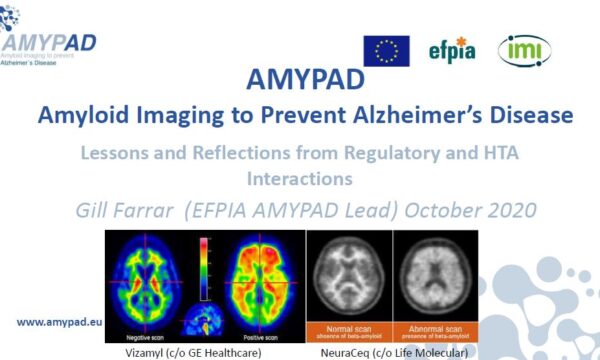What is your current role on AMYPAD?
I am PI of the diagnostic and patient management study (DPMS), a Randomized Control Trial (RCT) aiming to test the incremental diagnostic confidence of amyloid PET in the workup of persons with cognitive complaints.
What is your overall vision?
AMYPAD DPMS’ results will prove key in the decision of payers to reimburse the ligand. AMYPAD DPMS will supply physicians and health care players with real-word data to plan management decisions of patients with suspected Alzheimer’s disease.
What do you find most challenging about the project?
To stick to the choice of a rigorous RCT design, with is at the same time non-invasive clinical routine. Amypad DPMS will run in three arms of 300 participants each. ARM1, amyloid PET performed early in the diagnostic workup; ARM2, amyloid PET performed after 8 months; and ARM3, amyloid PET performed whenever the physician chooses to do so. The primary endpoint is the difference between ARM1 and ARM2 in the proportion of patients receiving a very confident etiologic diagnosis after 3 months. Secondary endpoints address diagnosis and diagnostic confidence, diagnostic/therapeutic management, health economics and patient-related outcomes, and methods for image quantitation.



